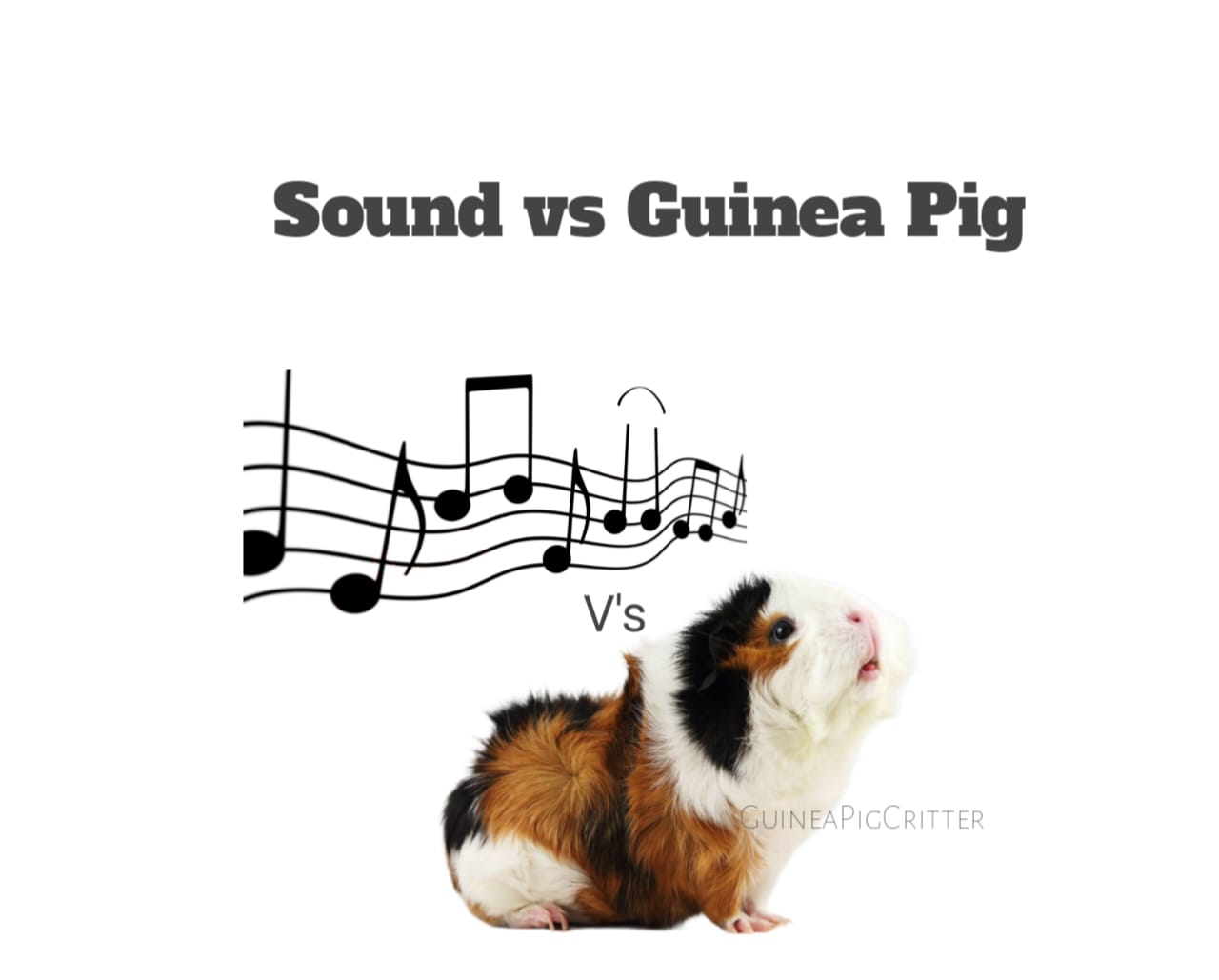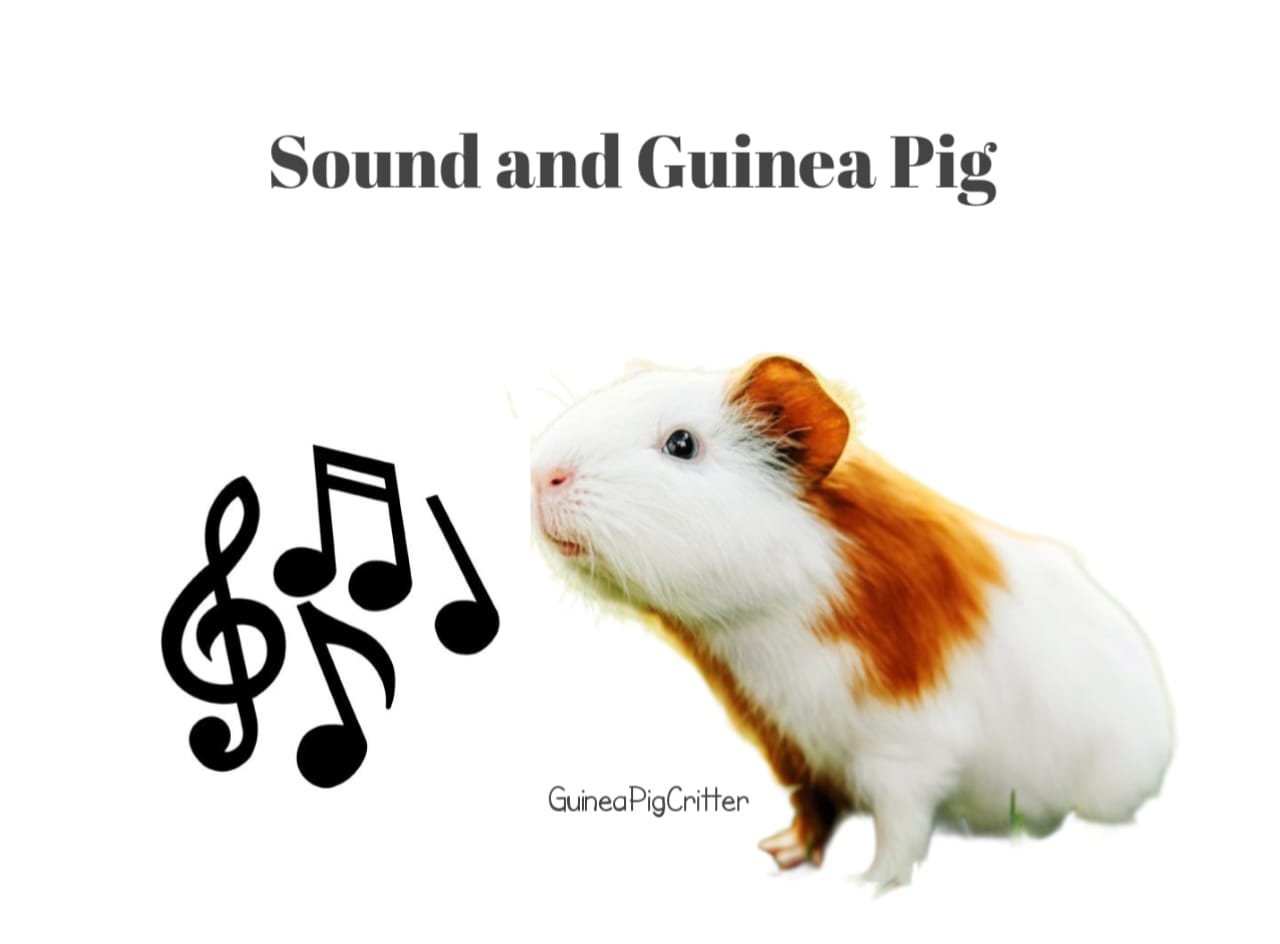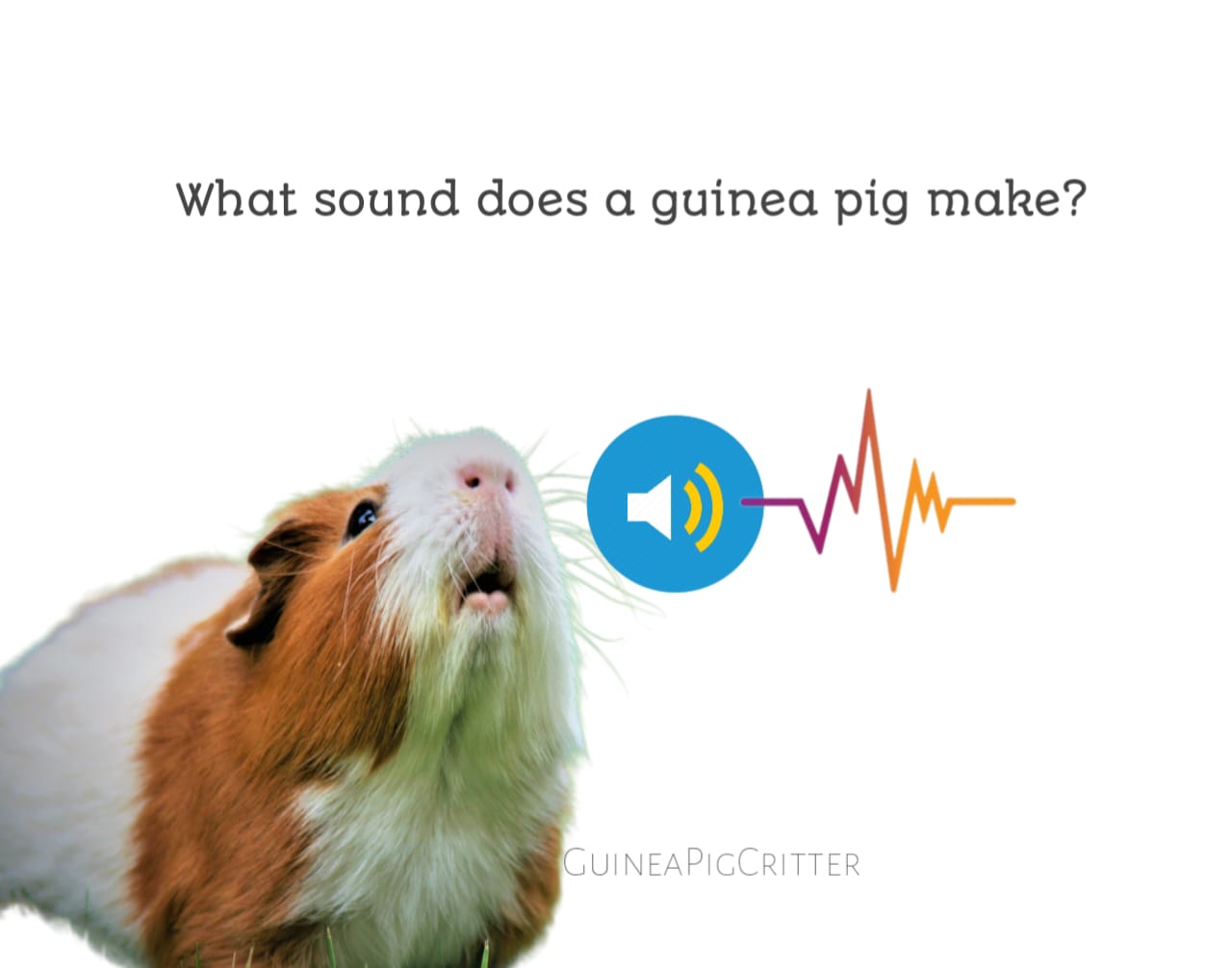People who want to have a close relationship with their guinea pigs and ensure the animals are healthy should bother to learn these sounds.
Guinea pigs are not only cute tumbling balls with twitching noses; they are also animated little animals. As this can be effective in understanding them, more can be said relative to gratifying their needs.
So, which sounds are related to guinea pigs, and what type of message do these sounds send? There’s an answer to this! Imagine if you could have a conversation with your guinea pig and discover what he/she would want to say.
Would they say something which indicates that they are happy or complaining due to lack of food? There are different sounds made by guinea pigs.
Each sound has a different message. By understanding and appreciating these messages, you can enrich the lives of your pets as well as understand their behaviors. This article will explain the common sounds made by guinea pigs as well as the meaning of each sound made.
See post :-Do Guinea Pigs Need to Be in Pairs?
What every New Guinea pig owner should know about their pets
Why do they squeak?
Guinea pigs are indeed social creatures with many means of communication. Some pets might be more or less vocal in their interaction. In contrast, guinea pigs are active and would often use various vocalizations to communicate with their surroundings and with one another.
These sounds can range from happy squeals to warning beeps. One should pay attention to these sounds in order to understand their human pet’s feelings and react appropriately.
The need to appreciate guinea pig sounds
Knowing the several sounds that guinea pigs make is an effective way of knowing what they need. For example, knowing the difference between a happy pet and a hurting one will allow you to do the right thing, whether it involves changing a meal or seeking more company for your pet.
Most frequently occurring guinea pig sounds with their implications
Purring and rumbling
Description: the terms purring and rumbling are two words that most people will use interchangeably, but in actual sense, they are quite different depending on what is being referred to. Purring is a consistent low vibrating sound that can be either short and off and on or lengthy, while rumbling is done faster and in even a more defined way.
What it means: in most cases, a purring guinea pig can be described as ‘happy’ and ‘calm.’ it is impressive as it is very much like the purring of house cats. But a pleasure, in this case, is more likely to occur during social activity. If the rumbling is far louder and there are more behaviors that go along with it, it may mean a more dominant and assertive attitude, particularly for multi guinea pig owners.

Squealing or whining
The clavichord, loud since it is high pitch, also possesses high sounds which are persistent and low sounds for short intervals. It can be constant or vary in how loud and for how long it is lit.
Squealing or whining is usually a sound produced when there is some excitement whether there is a treat, during playtime or when one is in sight. But if the squealing is perpetual and seems only to be for distress, it could – amongst other things – be a sign of discomfort or hunger.
Chirping
Chirping is one of the noises regarded as rare and sounds like the chirp of a bird or a low whistle. It is not usually loud or frequent with other sounds.
Although some guinea pigs chirp in excitement, and others in satisfaction, it can also be associated with stress or discomfort. Some guinea pig lovers have reported that chirping comes out at times when the guinea pig is enjoying herself, while others observed that it occurs in response to certain environmental changes.
Teeth chattering
Teeth chattering comprise a quick succession of sound made by the teeth clicking or grinding which can be loud enough to be heard.
Teeth chattering is a general behavioral activity, which happens in times of irritation, annoyance, or aggression. It can occur when your guinea pig perceives threats or when there is an act of dominance among them. It is advisable to observe such events and make sure that your guinea pig is comfortable within that specific space.
Squeaking
In squeaking sounds, surgically short, sharp noises emitted comprise the main sound. They are fresh and most often high-pitched, although their intensity may vary.
Squeaking is usually an indication of a surprise or distress. For example, your pet guinea pig might squeak if it is caught off guard. Or, when it is alone in the cage and it is seeking your attention. When it squeaks, it moves to the fore and over, indicating that this will get attention.
Context matters: making sense of sounds in variations of contexts.
Feeding time
Eating time is generally the loudest time with guinea pigs. Expect more squawking and conversing since people in close vicinity with food usually increase squealing. Note the sounds that these animals are making to know how motivated they are to feed and what amount of food they are being fed.
Such animals if aroused and vocalizing like this this excessively then it could be that they are still craving or have to and up longing for other treats.
Playtime vs. Alone time
During playtime and most of the time, guinea pigs are much louder but such happy and excited noises like purring, squeaking may also be heard. Such sounds tell the owners that the animals are in good mood and they are spending time with everything that surrounds them.
On the contrary when the iguana is able to chase the other iguana but only makes loud call of distress indicating that there is no social connection and this could mean that there is boredom or vice. Making sure that they have a lot of interaction with others and things will help prevent such feelings.
Certain sounds may also occur as symptoms of certain health conditions. For instance, a guinea pig may engage in high pitch squeals out of a sudden, or there are fewer sounds seeming to be made, suggesting there is discomfort within the pet.
A sudden alteration in the usual vocal phenomenon of an animal can suggest that there might be a cause for concern and it is best to seek the guidance of a health professional’s advice at any point when there is any determination of behavioral change, especially if it is abrupt or strange.
Read also :-Do Guinea Pigs Have Four Teeth?
How to help with the sounds of your guinea pig
Building a connection
Your relationship with your guinea pig can only grow stronger if you communicate with them and pay attention to their sounds. Most importantly, you will notice and respond to your pets’ vocalization, thereby exhibiting to the pet that they are cared for. For example, when your pet guinea pig is squealing for attention, it would be good if they can be attended to in order to enhance their bonding with the pet owner.
Creating a comfortable environment
Understanding that a guinea pig’s environment has a great effect on the sounds they make, what was aimed at was control of this environmental factor. Making sure that their enclosure is stress free and filled with stimulating items such as toys, and places to hide will minimize sounds related to stress. If a guinea pig is well taken care of, it will most likely generate happy and soothing sounds instead of agitated sounds.
While the guinea pig sounds are often normal and a way of communicating, some of them are pathological and can signify an issue with health. If your guinea pig starts to make different sounds or new sounds, or important changes in behavior, appetite or physical condition are noticed, the intervention of a vet is required. This is because, if you act in a timely manner the situation can be remedied before it is too late, and health complications are severe.

Fun facts about guinea pig sounds
Vocalization skills
Be aware that guinea pigs do not just produce only one sound making them quite boring. Some of these sounds apply to all the guinea pigs while some differ from one guinea pig to another. For instance, the purring or the rumbling comes in different amplitudes, pitches, and duration making most people not know who is doing it – one individual or two.
Guinea pig “language”
Guinea pigs may also communicate according to their personalities and individual experiences. Therefore, when some generalizations can be made as to the expression of some phonemes, it can be observed that every guinea pig may have certain peculiarities.
Such as their particular cries and squeaks that some owners may disregard and simply wonder “what a fussy little guinea pig!” And others try to strategist “what does she want to say?” In order to be able to appreciate their particular language, the owner must observe what kinds of sounds the guinea pig produces and try to figure them out.
Understanding
The differences in guinea pigs’ voicing are not only interesting for the pet owners but are also a vital voicing skill that must be present in every owner. Hence, once you become aware of what their squeals represent, you would be able to satisfy your guinea pig’s needs and offer them proper attention as well as take your relationship with them a notch higher.
Therefore, the next time you hear one of those squeaks, purrs and chirps, you will be able to understand that there are ideas behind these sounds and that you would offer the appropriate understanding to your cute companion.


